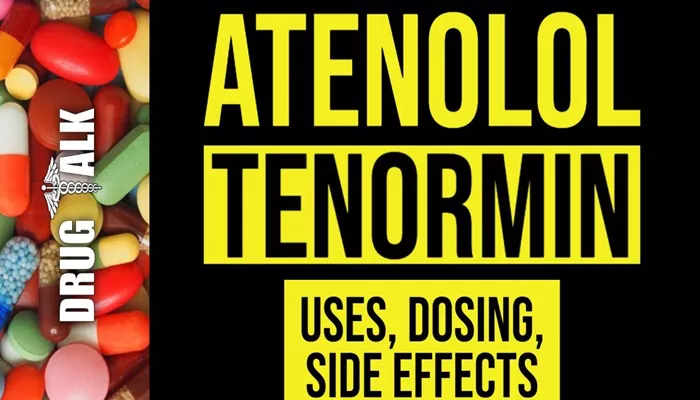Palpitations are sensations of a racing, fluttering, or pounding heartbeat. They can be alarming and may occur due to various reasons, including anxiety, stress, caffeine intake, or underlying heart conditions. For many individuals experiencing frequent palpitations, beta blockers are often prescribed as a treatment option. This article will explore what beta blockers are, how they work, and which beta blockers are considered the best for managing palpitations.
What Is Beta Blockers?
Beta blockers, also known as beta-adrenergic blocking agents, are a class of medications that reduce the heart’s workload.
They work by blocking the effects of adrenaline, a hormone that increases heart rate and blood pressure. By inhibiting these effects, beta blockers help to lower heart rate, reduce blood pressure, and improve heart function.
Common Types of Beta Blockers
There are several types of beta blockers available, each with its specific uses and characteristics. Some of the most commonly prescribed beta blockers include:
Atenolol (Tenormin): Often used for treating high blood pressure and angina, it is effective in reducing heart rate and controlling palpitations.
Metoprolol (Lopressor, Toprol XL): This medication is frequently prescribed for heart conditions, including palpitations, hypertension, and heart failure.
Bisoprolol (Zebeta): This beta blocker is commonly used for heart failure and hypertension. It is also effective in managing palpitations.
Propranolol (Inderal): This non-selective beta blocker is used for various conditions, including anxiety, migraines, and palpitations. It is particularly effective for performance anxiety-related palpitations.
Carvedilol (Coreg): This medication blocks both beta and alpha receptors, making it useful for heart failure and hypertension, as well as for managing palpitations.
SEE ALSO: What Characteristic Is Abnormal In Sinus Arrhythmia?
How Beta Blockers Help with Palpitations
Beta blockers are often the first line of treatment for individuals experiencing palpitations, especially when they are caused by anxiety, stress, or certain heart conditions. Here’s how they work:
Reduction of Heart Rate: By blocking the effects of adrenaline, beta blockers slow down the heart rate. This can help alleviate the sensation of palpitations and make them less noticeable.
Stabilization of Heart Rhythm: Beta blockers can help stabilize the heart’s electrical activity, reducing the frequency of irregular heartbeats that can lead to palpitations.
Decreased Anxiety: For individuals whose palpitations are linked to anxiety or panic attacks, beta blockers can help reduce the physical symptoms of anxiety, thereby decreasing the occurrence of palpitations.
Choosing The Best Beta Blocker for Palpitations
The choice of the best beta blocker for managing palpitations depends on several factors, including the underlying cause of the palpitations, the patient’s medical history, and any other medications they may be taking. Here are some considerations:
1. Underlying Condition
If palpitations are caused by a specific heart condition, such as atrial fibrillation or heart failure, a healthcare provider may recommend a specific beta blocker that is most effective for that condition. For example:
Atrial Fibrillation: Metoprolol and bisoprolol are commonly used to control heart rate in patients with atrial fibrillation.
Anxiety-Related Palpitations: Propranolol is often preferred for patients whose palpitations are linked to anxiety or stress.
2. Patient Tolerance
Different beta blockers can have varying side effects. Some individuals may tolerate one type better than another. Common side effects of beta blockers include:
- Fatigue
- Dizziness
- Cold hands and feet
- Sleep disturbances
- Reduced exercise tolerance
A healthcare provider will consider the patient’s tolerance and any side effects experienced when selecting a beta blocker.
3. Drug Interactions
It is essential to consider potential drug interactions when prescribing beta blockers. Patients taking other medications should inform their healthcare provider to avoid adverse effects. For example, beta blockers can interact with medications for diabetes, asthma, and other heart conditions.
Dosage And Administration
The dosage of beta blockers varies based on the specific medication and the condition being treated. Here are some general guidelines:
Atenolol: The typical starting dose for palpitations is 25-50 mg once daily, which may be adjusted based on response.
Metoprolol: Common starting doses range from 25 to 100 mg per day, depending on the formulation (immediate-release or extended-release).
Bisoprolol: The usual starting dose is 2.5 to 5 mg once daily, with adjustments made based on the patient’s condition.
Propranolol: Doses for managing anxiety-related palpitations typically start at 10-20 mg taken 30 minutes to 1 hour before a stressful event.
Monitoring And Follow-Up
Patients prescribed beta blockers for palpitations should have regular follow-up appointments with their healthcare provider. Monitoring may include:
Heart Rate and Blood Pressure: Regular checks to ensure the medication is effectively managing heart rate and blood pressure.
ECG Monitoring: An electrocardiogram may be performed to assess the heart’s rhythm and detect any abnormalities.
Adjustment of Dosage: Based on the patient’s response and any side effects experienced, the healthcare provider may adjust the dosage or switch to a different beta blocker.
Potential Side Effects of Beta Blockers
While beta blockers are generally well-tolerated, they can cause side effects in some individuals. Common side effects include:
Fatigue: Many patients report feeling tired or fatigued when starting beta blockers.
Dizziness: Some individuals may experience dizziness, especially when standing up quickly.
Cold Extremities: Beta blockers can reduce blood flow to the extremities, leading to cold hands and feet.
Sleep Disturbances: Some patients may experience insomnia or vivid dreams.
Depression: Although rare, some individuals may experience mood changes or depression while taking beta blockers.
Patients should discuss any side effects with their healthcare provider, as adjustments may be necessary.
Conclusion
Beta blockers are a valuable treatment option for individuals experiencing palpitations. They work by reducing heart rate, stabilizing heart rhythm, and alleviating anxiety-related symptoms. The choice of the best beta blocker depends on the underlying cause of the palpitations, patient tolerance, and potential drug interactions. Regular monitoring and follow-up with a healthcare provider are essential to ensure the effectiveness of the treatment and to manage any side effects.

